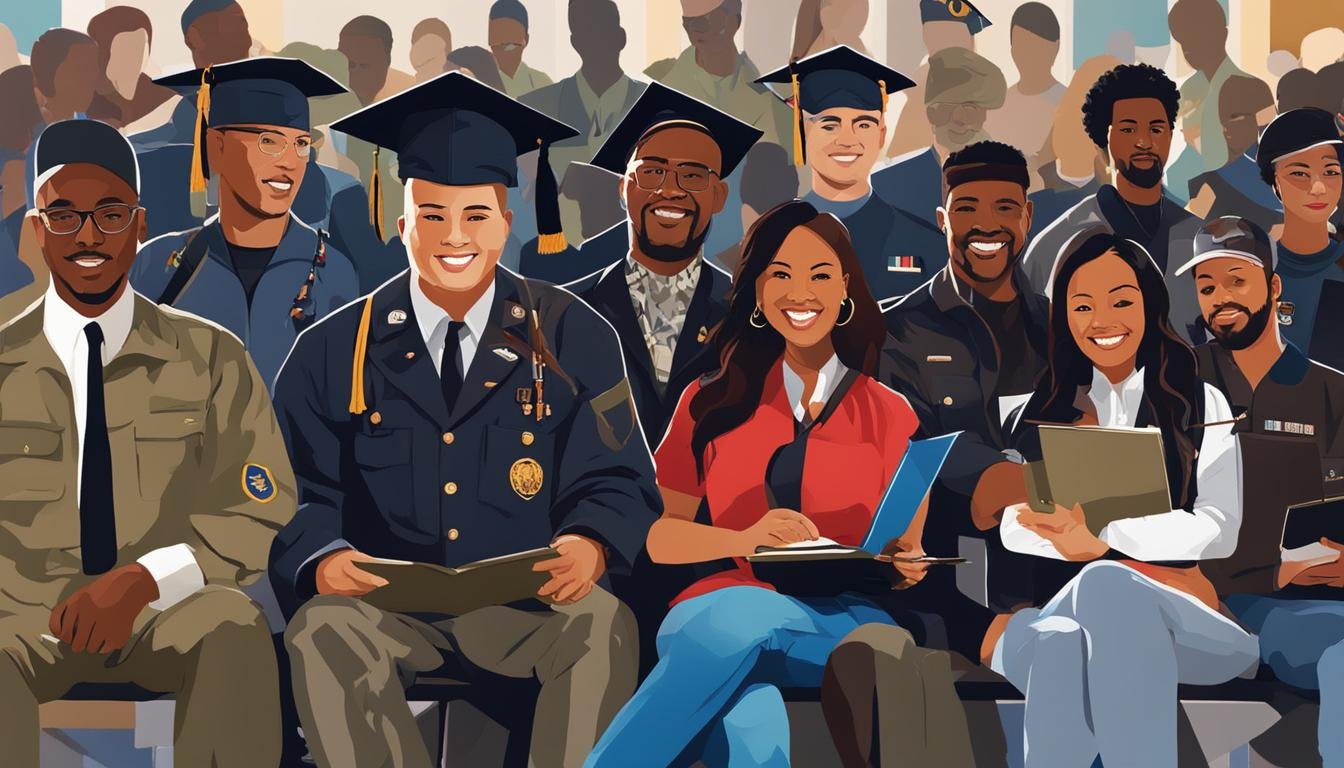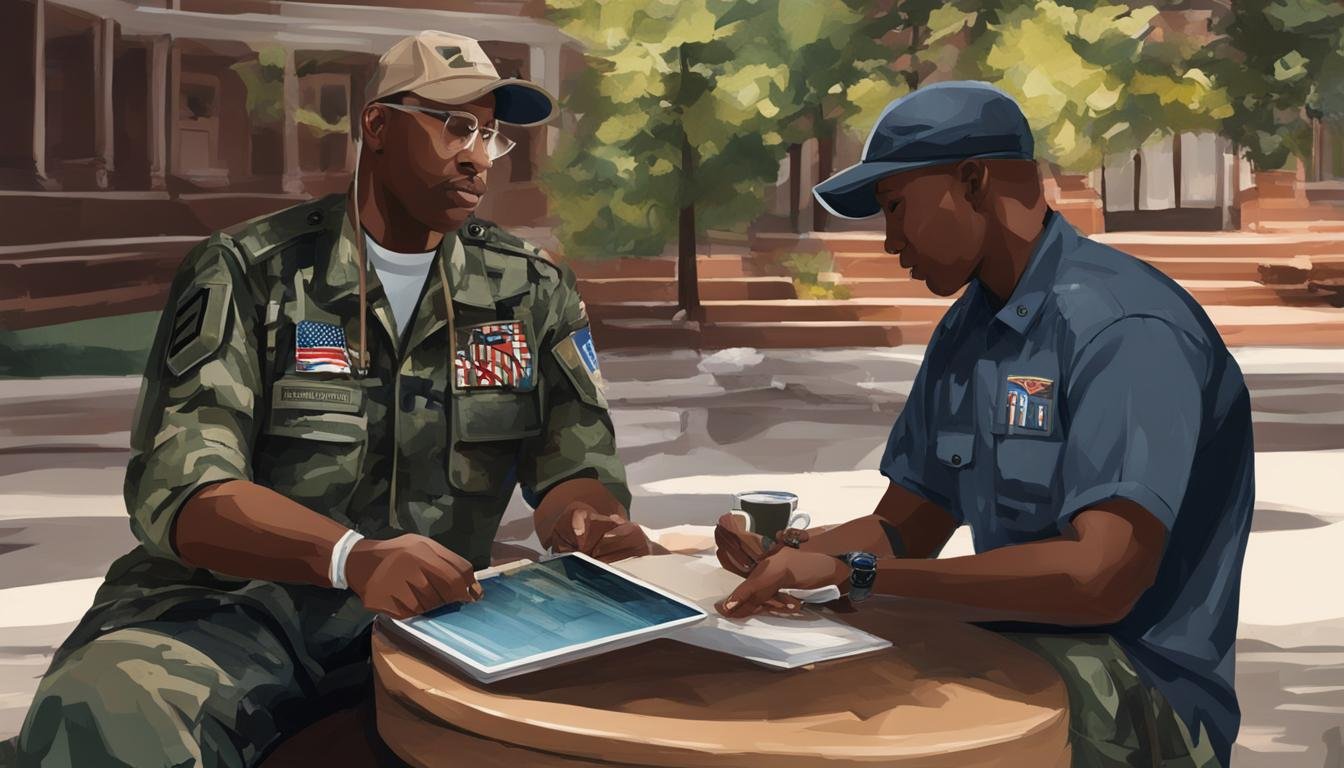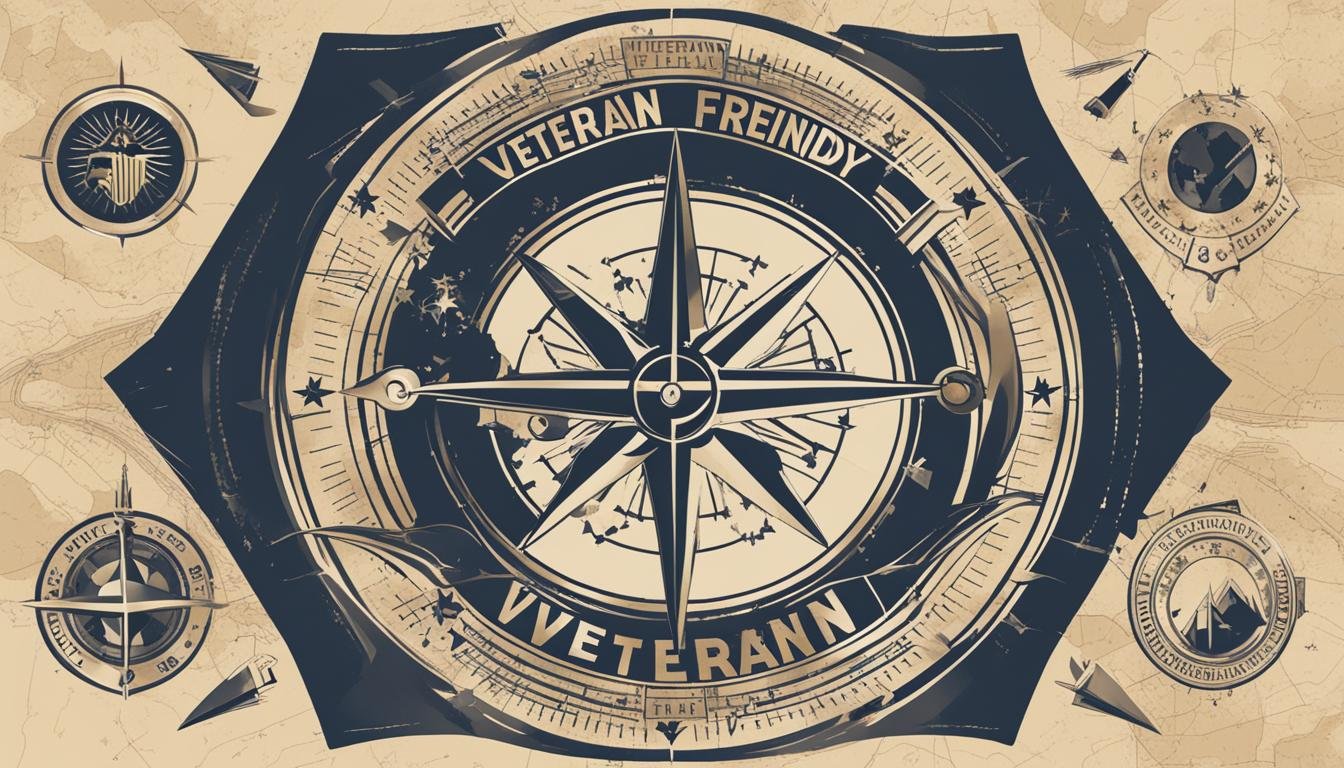Since August 2009, over two million veterans have returned to school in the United States to pursue associate’s, bachelor’s, and graduate degrees. Research shows that student veterans earn higher GPAs than their civilian counterparts, acquire transferrable skills from military training, and bring unique perspectives that enhance diversity and learning on campus. Student veterans also demonstrate appreciation, loyalty, and lower unemployment rates post-graduation. The Post-9/11 GI Bill has played a crucial role in supporting veterans’ educational pursuits.
As more veterans enroll in higher education, it becomes increasingly important to understand the impact of veteran services on college success. By providing support programs and educational resources for veterans, institutions can ensure that these student veterans thrive in their academic journey. Let’s explore the benefits that veteran services bring to college campuses and how they contribute to the overall success of veteran students.
Key Takeaways:
- Veteran services have a positive impact on college success for student veterans.
- Student veterans earn higher GPAs and bring diverse perspectives to campus.
- The Post-9/11 GI Bill plays a crucial role in supporting veterans’ educational pursuits.
- Institutions must provide tailored support services for the unique needs of veteran students.
- By empowering and recognizing the contributions of student veterans, institutions create a more inclusive and successful higher education experience.
Enrollment of Veterans in Higher Education
Transitioning from military service to college can be a challenging experience for veterans. However, higher education institutions are increasingly focused on providing support and resources specifically tailored to the unique needs of veteran students. As of 2014, almost all colleges and universities in the United States enroll veterans, recognizing the valuable contributions they bring to campus communities.
Student veterans possess a unique set of skills and characteristics that contribute to their academic success. Their military training instills discipline, resilience, and a strong work ethic, making them well-equipped to excel in their studies. Research has shown that student veterans often outperform their nonveteran peers in terms of GPA and graduation rates, proving that their military experience translates into academic success.
To further enhance the college experience for veterans, institutions have implemented various programs and support services. These initiatives offer academic tutoring, counseling, and financial aid assistance, among other resources. Additionally, many colleges have dedicated veteran resource centers, which act as a hub for veteran students to connect, seek guidance, and access the resources they need to thrive in their academic pursuits.
The Benefits of College Programs for Veterans
College programs designed specifically for veterans provide a supportive environment that helps ease the transition from military service into higher education. These programs often offer specialized courses, mentorship opportunities, and career development services tailored to the needs and goals of veteran students. By addressing the unique challenges faced by veterans, these programs contribute to their overall success and well-being on campus.
| Benefits of College Programs for Veterans: |
|---|
| Specialized courses and academic support |
| Mentorship and peer support networks |
| Career development services and job placement assistance |
| Access to counseling and mental health resources |
| Financial aid and scholarship opportunities |
By providing these valuable resources and programs, colleges and universities play a crucial role in empowering and supporting our nation’s veterans as they pursue their educational goals. Recognizing their unique experiences and contributions, institutions are working towards creating an inclusive and veteran-friendly campus culture that benefits both veteran and nonveteran students alike.
Challenges and Support for Student Veterans
Student veterans face unique challenges during their college transition. These challenges can include relocation, lack of continuity in education, physical and psychological issues, financial concerns, and social isolation. Many student veterans also have families and may be first-generation college students. These factors can make the transition to college life particularly challenging for veterans.
In order to support student veterans, colleges and universities need to provide a range of support services. These services should be tailored to the specific needs of veterans and include assistance with benefits administration, academic advising, and creating a veteran-friendly campus culture. Institutions that have ROTC units and faculty members with military experience are often considered more military-friendly and can provide additional support to student veterans.
A key aspect of supporting student veterans is creating a veteran-friendly campus culture. This can involve recognizing and appreciating the unique contributions that veterans bring to the campus community. It can also mean providing resources and programs that address the specific needs and challenges faced by student veterans.
| Support Services for Student Veterans | Description |
|---|---|
| Benefits Administration Assistance | Helping student veterans navigate the complex process of accessing and utilizing their benefits, such as the Post-9/11 GI Bill. |
| Academic Advising | Providing specialized academic advising for student veterans to help them choose appropriate courses and develop a plan for academic success. |
| Mental Health Support | Offering counseling services tailored to the unique needs of student veterans, including support for post-traumatic stress disorder (PTSD) and other mental health conditions. |
| Peer Mentoring | Connecting student veterans with other student veterans who can provide guidance and support. |
| Financial Aid Support | Assisting student veterans in accessing financial aid resources and scholarships specifically available to veterans. |
By providing comprehensive support services, colleges and universities can help student veterans overcome the challenges they face and improve their chances of academic success. In turn, student veterans bring valuable skills, perspectives, and diversity to the campus community, enriching the overall educational experience for all students.
How Can Veteran Services in College Impact Academic Success?
The availability of veteran services in college has a significant impact on the academic success of military veterans. Through tailored support, mentorship, and resources, veterans college success stories highlight the positive outcomes of tailored support for those who have served in the military. These services help create a smoother transition to academic life.
What is the Link Between Veteran Status and College Success?
The impact of veteran status on college success is a complex issue that encompasses factors such as mental health, support systems, and transition challenges. Many veterans bring valuable skills and experiences to higher education, but they may also face unique obstacles that can impact their academic performance and overall success.
Conclusion
Student veterans bring valuable skills and perspectives to higher education institutions. Their success in academic performance, graduation rates, and employment outcomes demonstrates the positive impact of veteran services on college success. By providing tailored programs, resources, and campus environments that recognize and appreciate their unique contributions, institutions can continue supporting and empowering veteran students.
It is crucial for colleges and universities to prioritize the needs of student veterans, ensuring they have access to support services that address the challenges they may face during their college transition. These challenges can range from physical and psychological issues to financial concerns and social isolation. Institutions should offer assistance with benefits administration and academic advising, creating a campus culture that is welcoming and understanding of the veteran experience.
Institutions with ROTC units and faculty members with military experience are often considered more military-friendly, establishing an environment where student veterans feel supported and valued. By maximizing the long-term value of veteran students and alumni, institutions not only fulfill the promises of the Post-9/11 GI Bill, but also foster a more inclusive and successful higher education experience for all students.



